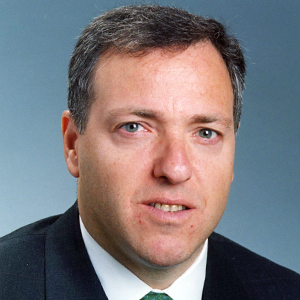



HSBC Bank, U.S. v. De Garcia considers the reach of the newly enacted Foreclosure Abuse Prevention Act (FAPA) and its effects on the six-year foreclosure statute of limitations.
Facts:
On July 16, 2009, HSBC commenced a foreclosure action against De Garcia with respect to a residential property located in Astoria, New York (the “2009 Action”). On April 18, 2011, the Supreme Court, Queens County (the “Court”) granted HSBC’s motion to discontinue the 2009 Action, as HSBC had commenced a second foreclosure action on April 5 of the same year (the “2011 Action”). On May 20, 2015, the parties executed a stipulation discontinuing the 2011 Action. In 2017, approximately eight years after the loan was first accelerated, HSBC brought a third foreclosure action (the “2017 Action”) against De Garcia, naming Rosete as a defendant. Rosete had been named as a “Jane Doe” defendant in both the 2009 and 2011 Actions. De Garcia filed an answer, raising that the action was time-barred by the statute of limitations. In May, 2018, HSBC’s motion to discontinue the 2017 Action was granted. The current action was filed on August 19, 2022. Rosete served an answer, once again asserting that the action is barred by the statute of limitations and bringing a counterclaim to quiet title under NY RPAPL 1501(4).[1]
Under NY RPAPL 1501(4), a person with an interest in real property can seek to cancel and discharge an encumbrance where the period allowed by the applicable statute of limitations for the commencement of an action to foreclose the mortgage has expired, provided that the mortgagee or its successor is not in possession of the real property at the time the action to cancel and discharge the mortgage has commenced.[2]
Arguments:
HSBC moved for summary judgment against Rosete, who cross moved for an order granting summary judgment, dismissing the complaint as time barred, cancelling the Notice of Pendency and granting Rosette summary judgment on the counterclaim to cancel and discharge the mortgage.
In opposition, HSBC argued the following:
Decision:
Under CPLR 213(4), an action to foreclose a mortgage is subject to a six-year statute of limitations. Even if the mortgage is payable in installments, once a mortgage debt is accelerated, the entire amount is due and the statute of limitations begins to run on the entire debt. It is well settled law that after a lender accelerates a mortgage debt, “[a] lender may revoke its election to accelerate the mortgage, but it must do so by an affirmative act of revocation occurring during the six-year statute of limitations period subsequent to the initiation of the prior foreclosure action.”[5]
In this case, the Court found that Rosete established her prima facie entitlement to summary judgment dismissing the complaint because the action is time barred. The enactment of FAPA effectively nullified the holding by the Court of Appeals in Freedom Mtge. Corp. v. Engel[6] that a voluntary discontinuance of an action constitutes an affirmative act of revocation of the acceleration of the debt. The Court determined Freedom Mtge. Corp. v. Engel cannot be applied retroactively, so it is unnecessary to analyze FAPA in relation to HSBC’s constitutional claims. Additionally, HSBC failed to submit evidence indicating that after the issuance of the order discontinuing the 2009 Action, that HSBC otherwise revoked the acceleration of the debt by an affirmative act within six years after the 2009 Action was commenced. Thus, the Notice of Lis Pendens filed by HSBC was cancelled against the real property in Astoria, New York.[7]
Takeaways:
This case illustrates the limitations of FAPA and the Court’s strong desire to uphold the six-year statute of limitations with regard to affirmative acts of revocation of acceleration of a mortgage. In light of the Court’s decision, the prudent lender must affirmatively revoke the acceleration of a mortgage during the six-year statute of limitations period to preserve its foreclosure rights under a mortgage loan.
[1] HSBC Bank, USA N.A. v. De Garcia, 84 Misc 3d 1203(A), 2024 NY Slip Op 51349(U) (Sup Ct, Queens County 2024).
[2] New York Consolidated Laws, Real Property Actions and Proceedings Law, § 1501(4).
[3] New York Consolidated Laws, Civil Practice Law and Rules, § 3217.
[4] Foreclosure Abuse Prevention Act, § 8.
[5] NMNT Realty Corp. v. Knoxville 2012 Trust, 151 AD3d 1068, 1069-70 (2d Dept. 2017).
[6] Freedom Mtge. Corp. v. Engel, 37 NY3d 1 (2021).
[7] HSBC Bank, U.S. v. De Garcia, No. 717330/2022, slip op. (N.Y. Sup. Ct. Sep. 23, 2024).